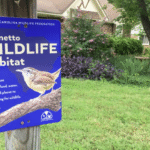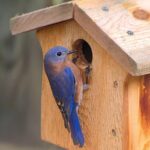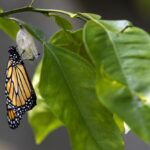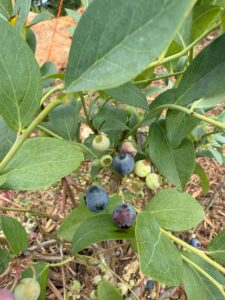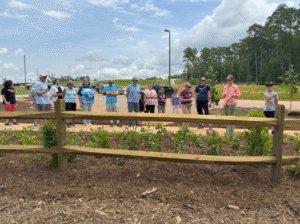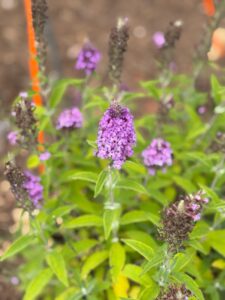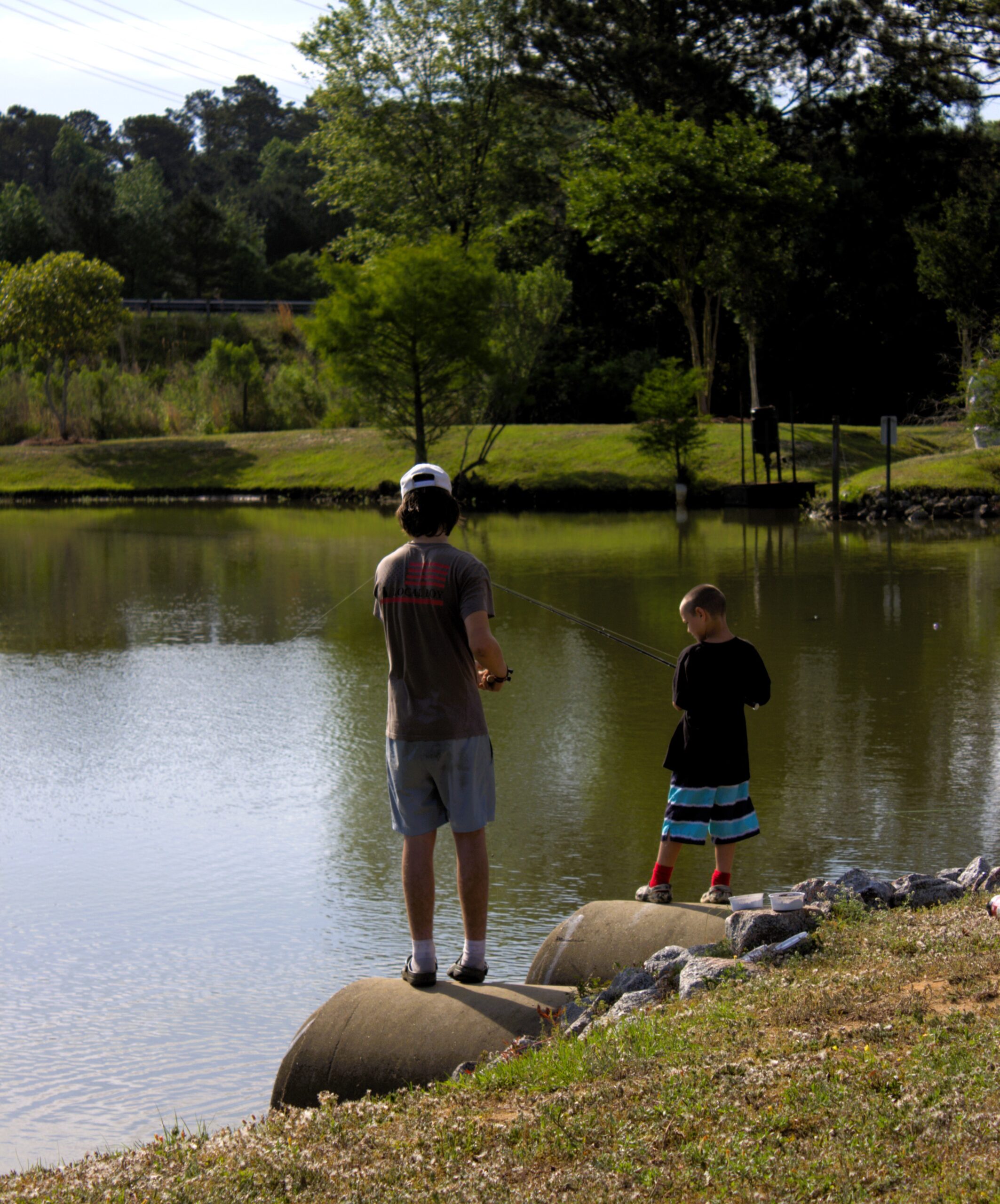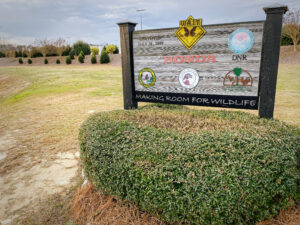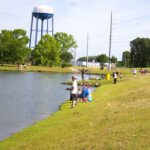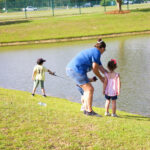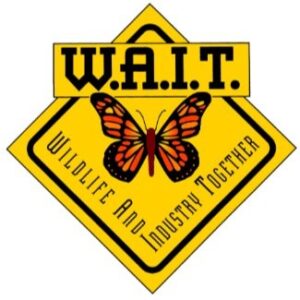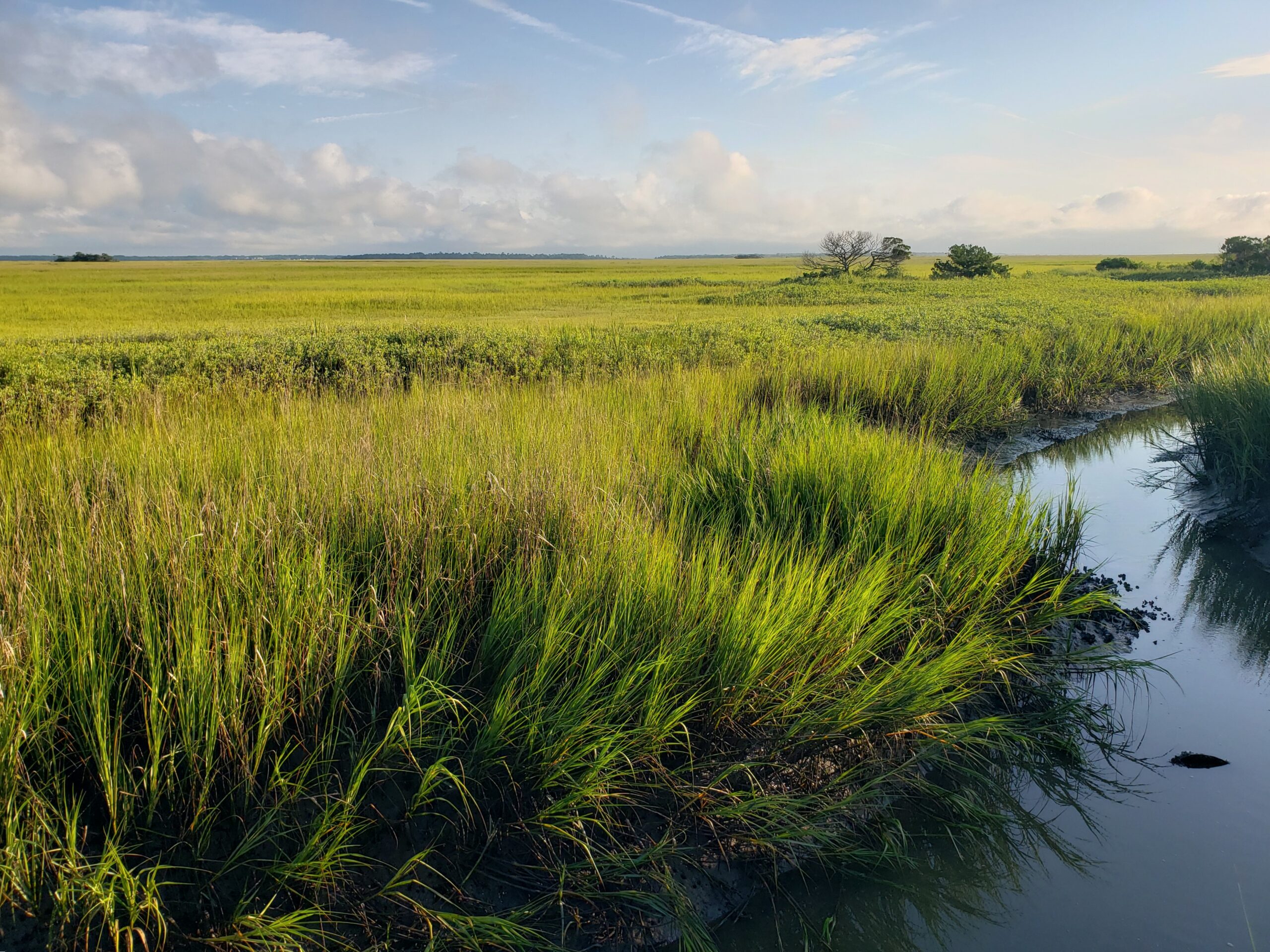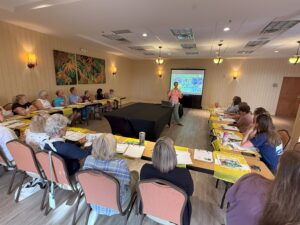 SCWF recently held a Habitat Workshop in Anderson, an interactive workshop designed to teach participants how to create a Certified Wildlife Habitat in their own yards to help support local wildlife. This workshop is part of our new Explores Series for 2025.
SCWF recently held a Habitat Workshop in Anderson, an interactive workshop designed to teach participants how to create a Certified Wildlife Habitat in their own yards to help support local wildlife. This workshop is part of our new Explores Series for 2025.
A Certified Wildlife Habitat is a designation given to properties that provide essential elements for wildlife, such as food, water, cover, and places to raise young, while also employing sustainable gardening practices. Once a yard is certified, it not only helps wildlife thrive, but it also is recognized by the National Wildlife Federation and helps to spread the message of wildlife-friendly gardening to neighbors and the community.
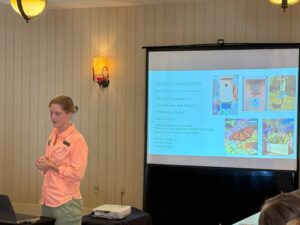
During the classroom portion of the workshop, participants were given an engaging and informative presentation from SCWF’s Habitat Education Manager, Savannah Jordan, where they learned about how to incorporate each of the essential elements into different landscapes and looked at pictures of their own yards to discuss ways for improving their own yards for all sorts of wildlife. They also learned about the value of native plants and the different types of plants to include for certain species of wildlife like monarch butterflies and other important pollinators.
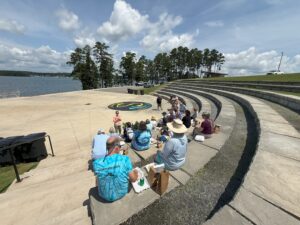 Following the classroom portion, participants met at Green Pond Landing, a 33-acre facility on the shores of Lake Hartwell designed as a high-capacity launch facility for fishing tournaments as well as recreational boating and fishing. Managed by Anderson County Parks, Green Pond Landing features 200 paved truck/trailer spaces and 100 paved single space parking as well as grass areas utilized for overflow parking. Green Pond Landing boasts the deepest launch lanes and most dock space on the lake as well as a two-story state of the art restroom facility. In 2021, Green Pond Landing completed the development of a 1,300-seat amphitheater which has hosted tournament weigh-ins and special events. Green Pond Landing turned 10 years old in December 2024 and celebrated an economic impact to the upstate of South Carolina that exceeded $100 million during the first decade.
Following the classroom portion, participants met at Green Pond Landing, a 33-acre facility on the shores of Lake Hartwell designed as a high-capacity launch facility for fishing tournaments as well as recreational boating and fishing. Managed by Anderson County Parks, Green Pond Landing features 200 paved truck/trailer spaces and 100 paved single space parking as well as grass areas utilized for overflow parking. Green Pond Landing boasts the deepest launch lanes and most dock space on the lake as well as a two-story state of the art restroom facility. In 2021, Green Pond Landing completed the development of a 1,300-seat amphitheater which has hosted tournament weigh-ins and special events. Green Pond Landing turned 10 years old in December 2024 and celebrated an economic impact to the upstate of South Carolina that exceeded $100 million during the first decade.

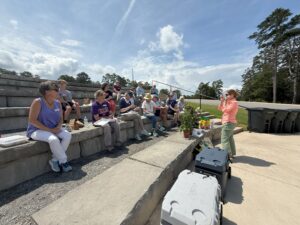
While enjoying lunch by the lakeside amphitheater that was generously provided by Visit Anderson, participants planted their own native milkweed seeds in peat pots that they took home to their own gardens to help monarch butterflies. A few lucky participants won door prizes in the form of native plants, including native purple coneflower and oakleaf hydrangea from a nearby nursery.
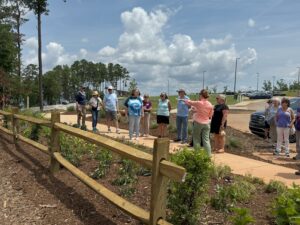
Participants took a tour of Green Pond’s brand new Certified Wildlife Habitat and Carolina Fence Garden, which was designed and installed by the city of Anderson. The group observed the variety of native plants in the garden and discussed the different habitat features and examples of how to improve habitat quality for a diversity of wildlife from bees and butterflies to birds and mammals. The workshop ended with the installation of educational signage in the garden that informs visitors about the different types of plants and pollinators that can be found in the garden.
Neil Paul with Visit Anderson stated, “It was an honor and a privilege to partner with the South Carolina Wildlife Federation and host the Habitat Workshop at Green Pond Landing. In Anderson County, we have taken a great deal of pride in establishing our facility as a leader, not only in hosting fishing tournaments, but in conservation and protecting our resource. Being able to partner with the Wildlife Federation to develop a ‘Certified Wildlife Habitat’ is another step in that leadership. The habitat garden provides an educational component for gardeners of all levels and adds to the beauty and the landscape of our lakeside facility. This project was a tremendous partnership, and we look forward to more opportunities to collaborate with the South Carolina Wildlife Federation.”
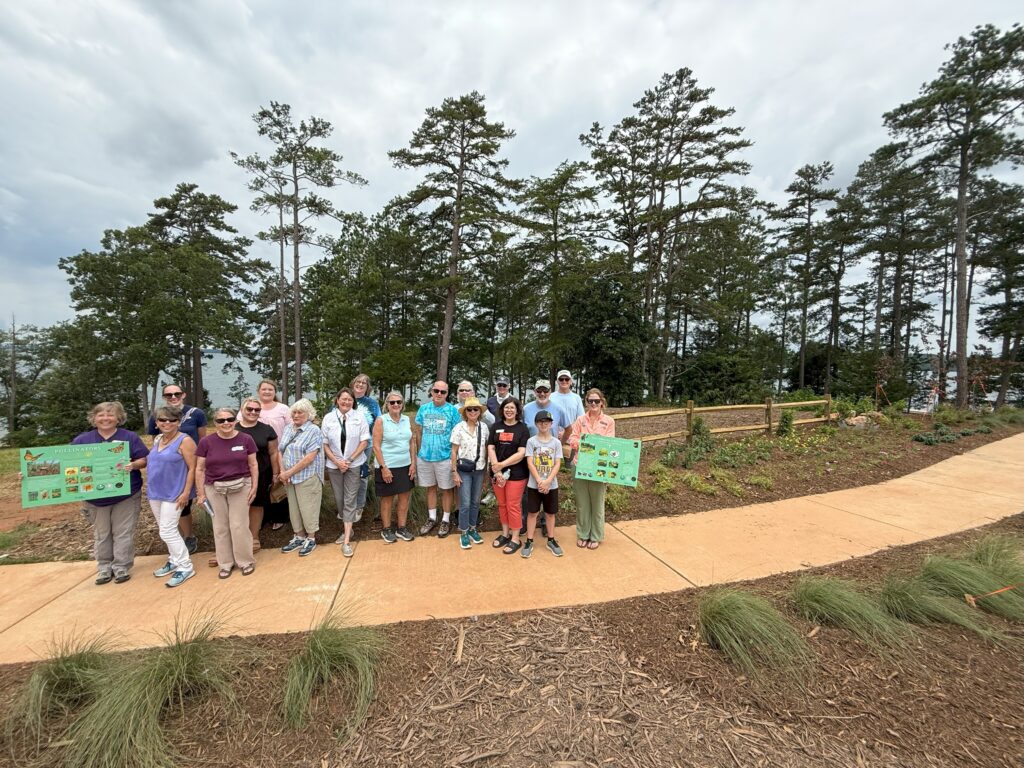
Learn more about Certified Wildlife Habitats and our other programs at https://www.scwf.org/habitat-restoration/.
To see SCWF’s upcoming workshops and other events, visit https://www.scwf.org/events/.
Thank you to the Duke Energy Foundation for sponsoring this workshop.


